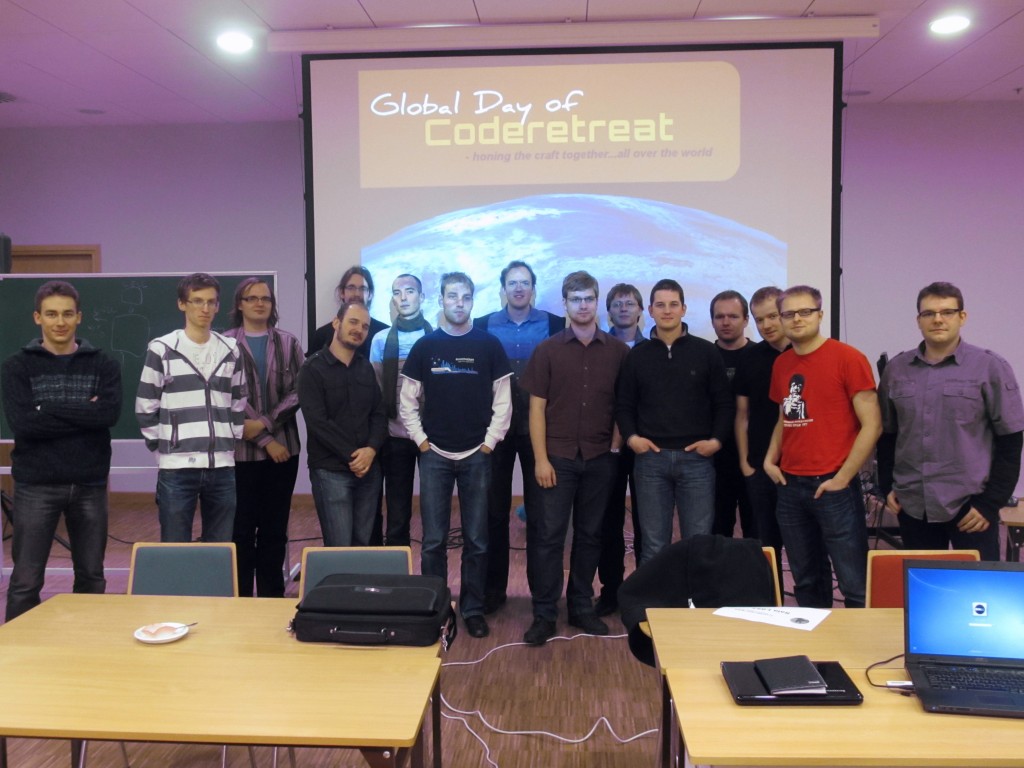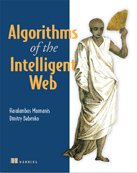Yup, it is almost March and I am doing a summary of previous year. In general 2014 was great but the beginning of 2015 is a real blast so far ;-). Last year after reading “Make summaries not promises” I decided that this a way to go. So, here it goes, the most relevant events of 2014 (related to my professional life).
Changing a job
After 8 years in PSNC, I’ve changed employer. It was definitely a good decision, it was not an easy one but in general I am really glad that I’ve made it. At PSNC I had a chance to work with great people, on awesome things. I had visited several nice places including my beloved Balkans, Istambul, Lisbon and many, many others. Librarianship is not considered as something very exciting but librarians who I have met are very far from that (they are more like this ;-)).
Allegro is a completely different pair of shoes, I really like the atmosphere of this company. Sometimes I am feeling like a kid in candy shop, there are so many technological candies here, it is hard to decide which one to eat first ;-). Really great people, whole load of stuff to learn — good choice.
Conferences/JUGs
I am organizing all kinds of community events since 2007. When I am attending meetup/conference it is highly probable that I am helping to organize it in some way or another (sic!). I had a firm resolution to change that.
Nice, @maneo speaking at @Atmosphereconf pic.twitter.com/uY0IyomNha
— ags313 (@ags313) May 20, 2014
In 2014 I had an opportunity to speak at three great conferences: Devcrowd 2014, Atmosphere 2014 and last but not least Polyconf. Apart from that, thanks to my JUnit talk (who could expect that people would like to listen about good old JUnit) I’ve visited Poznań JUG and Trójmiasto JUG (thanks to courtesy of Jakub Marchwicki) — really nice experience.
Polyconf is something new. I was really impressed by the diversity of topics/languages and approaches which was touched during this conference. I am really looking forward to go there in 2015.
When it comes to regular conference attendence, I’ve never had a chance to participate in one more, totaly focused event. Most of the dev conferences are covering broad set of topics (depending on speakers who are available) related to all kinds of software development areas. In November I’ve participated in Lucene/Solr Revolution in Washington D.C. Conference entirely dedicated to SOLR/Lucene. I must say, that this kind of approach gives really nice results. To some extent it was an inspiration for Test Driven GeeCON, which took place in Jan 2015.
Technical reviewer
For the second time (after NetBeans 7 Cookbook) I had a chance to appear as a technical reviewer for one of the Packt Publishing books. I broke my relationship with Java EE after leaving PSNC but I was honoured when my former students and great colleagues Michał Matłoka and Michał Ćmil asked me to take a look at their very first book. “Java EE 7 Development with Wildfly” is a really nice compendium of knowledge about Java EE 7. If you are looking for a book which will show you testable face of enterprise flavour of Java this is the right choice. Once again congratulations for getting to an end with that guys!
Just received my copy of #java EE 7 dev. with #wildfly by @mmatloka and @michalcmil – looks really nice! pic.twitter.com/NZFTYpp51Z
— Adam Dudczak (@maneo) February 4, 2015
What I didn’t like in 2014
I gave up on running, this was the least time consuming form of sports which I know. I’ve promised myself that I will come back to this. Thankfully I am stil an active biker ;-).
2015
As I said in the beginning 2015 started with a series of very important things, our third child was born (Matylda), together with Łukasz Stachowiak (and others at GeeCON team!) we’ve managed to organize (in just two months) Test Driven GeeCON. Looking at these things it seems that 2015 might be even better than 2014.
As one of my resolutions, I’ve promised myself to resurrect this blog (and support of course allegrotech.io) with at least 6 posts. Apart from that I hope that 2015 will be the year of open source for me. I’ve never contributed to OSS and it’s time to change that.


 Chapters from two to six have similar structure, starting with some theory necessary to understand presented concepts, then some clear examples presenting real word usage. Examples are extended with some additional more advanced features but everything is still perfectly understandable. Readers would learn how to adopt existing APIs (eg. digg.com), how to aggregate and transform content in order to create innovative mashups. After practical part, readers will find some notions about usage of presented solution in production. Authors describes common mistakes which leads to dead ends during implementation of modern intelligent web applications and this is definitely one of the biggest advantages of this book. What is also worth to mention, Marmanis and Babenko emphasize the role of quality of results and show general ways in which one can evaluate obtained outcome. At the end of each chapter readers can find TODOs, a section with tasks that maybe done in order to utilize presented solutions better.
Chapters from two to six have similar structure, starting with some theory necessary to understand presented concepts, then some clear examples presenting real word usage. Examples are extended with some additional more advanced features but everything is still perfectly understandable. Readers would learn how to adopt existing APIs (eg. digg.com), how to aggregate and transform content in order to create innovative mashups. After practical part, readers will find some notions about usage of presented solution in production. Authors describes common mistakes which leads to dead ends during implementation of modern intelligent web applications and this is definitely one of the biggest advantages of this book. What is also worth to mention, Marmanis and Babenko emphasize the role of quality of results and show general ways in which one can evaluate obtained outcome. At the end of each chapter readers can find TODOs, a section with tasks that maybe done in order to utilize presented solutions better.